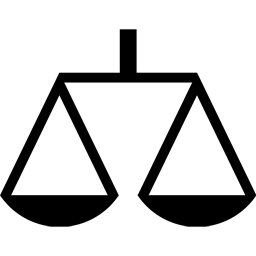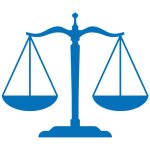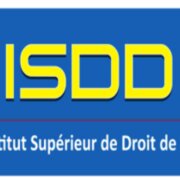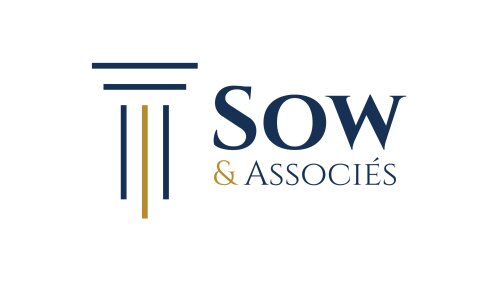Best Tax Lawyers in Dakar
Share your needs with us, get contacted by law firms.
Free. Takes 2 min.
List of the best lawyers in Dakar, Senegal
About Tax Law in Dakar, Senegal
Tax law in Dakar, Senegal governs the rules and regulations surrounding the assessment, collection, and management of taxes by the Senegalese government. The tax system includes several types of taxes, such as personal income tax, corporate tax, value-added tax (VAT), property tax, and various local levies. Senegal's tax laws are primarily outlined in the General Tax Code (Code Général des Impôts), which is enforced by the Directorate General of Taxes and Domains (Direction Générale des Impôts et des Domaines - DGID). These regulations apply to both individuals and businesses operating within Dakar and across the country.
Why You May Need a Lawyer
Navigating tax law in Dakar can be challenging due to the complexity and ever-changing nature of tax regulations. Here are some common situations where you may need legal assistance:
- Understanding your obligations as a resident or non-resident taxpayer
- Properly registering a business and complying with corporate tax requirements
- Resolving disputes or audits with the tax authorities
- Managing tax liabilities, credits, and deductions for both individuals and companies
- Complying with VAT and other indirect tax requirements
- Dealing with penalties or sanctions related to non-compliance
- Planning tax-efficient transactions, including mergers, acquisitions, or property transfers
- Applying for tax reliefs, refunds, or relief from double taxation treaties
- Protecting your rights during tax inspections or investigations
Whether you are an individual or a business owner, a qualified tax lawyer can help you to protect your interests, minimize tax liabilities, and ensure compliance with local laws.
Local Laws Overview
Tax laws in Dakar flow from national legislation found in the General Tax Code. Key aspects to consider include:
- Personal Income Tax: Senegal uses a progressive tax system for individuals, with rates depending on income brackets. Salaries, wages, and other forms of income are subject to various taxes and social contributions.
- Corporate Tax: Companies are subject to a standard corporate income tax, as well as minimum flat-rate tax depending on turnover. Additional levies may apply depending on sector and activity.
- Value-Added Tax (VAT): Most goods and services are subject to VAT, currently set at 18 percent, with some exemptions and reduced rates for specific sectors.
- Property Tax: Individuals and businesses owning real estate in Dakar must pay property tax, with rates depending on the use and location of the property.
- Other Taxes: These include local business taxes, registration duties, capital gains tax, and specific sector levies.
Tax administration is handled by the DGID, which also oversees enforcement, audits, and dispute resolution. Taxpayers have legal obligations pertaining to registration, filing, payment, and record maintenance. Non-compliance may result in fines, penalties, or legal proceedings.
Frequently Asked Questions
What are the main types of taxes I need to pay in Dakar?
The main taxes include personal income tax, corporate tax, value-added tax (VAT), property tax, and various local levies.
How is personal income tax calculated?
Personal income tax in Senegal is progressive, based on income brackets. The rate you pay depends on your total taxable income in a financial year.
Do I need to pay taxes as a foreigner living or working in Dakar?
Yes, residents are generally taxed on their worldwide income, while non-residents are taxed on Senegalese-sourced income. Tax treaties and special rules may apply.
How often must businesses file their tax returns?
Most businesses must file tax returns annually for corporate income tax and monthly or quarterly for VAT, depending on their turnover and sector.
What happens if I am late or miss a tax payment?
Late or missed payments can result in penalties, interest charges, and potential legal actions from the tax authorities.
How are tax disputes resolved in Senegal?
Taxpayers may challenge assessments or penalties by filing a complaint with the DGID. Further disputes can be taken to the administrative courts.
Are there deductions or credits available to reduce my tax burden?
Yes, certain expenses and investments can be deducted or credited. This varies depending on taxpayer status and the nature of income or business activities.
Is VAT applicable on all goods and services?
Most goods and services are subject to VAT at 18 percent, though some essential items and sectors may be exempt or taxed at lower rates.
How do I register my business for tax purposes in Dakar?
Businesses must register with the DGID and obtain a taxpayer identification number (NINEA) before commencing operations.
Where can I find official information about tax rates and regulations?
The Directorate General of Taxes and Domains (DGID) publishes official guidelines, updates, and tax rates on their website and at their physical offices.
Additional Resources
The following resources and organizations can offer guidance or official information about tax issues in Dakar, Senegal:
- Directorate General of Taxes and Domains (DGID): The central authority for tax registration, information, and enforcement.
- Ministry of Finance and Budget (Ministère des Finances et du Budget): Oversees fiscal policies and reforms.
- Senegal Bar Association (Ordre des Avocats du Sénégal): Provides a directory of qualified tax attorneys.
- Chamber of Commerce (CCIAD): A resource for business-related tax guidance.
- Local tax offices: Located throughout Dakar for in-person consultations and payments.
Next Steps
If you believe you need legal assistance related to tax matters in Dakar, consider the following approach:
- Clearly identify your specific tax issue or question.
- Gather all relevant documents, such as tax returns, notices, business registrations, and correspondence with the tax authorities.
- Consult publicly available resources, such as the DGID or official government publications, for basic guidance.
- If the issue appears complex or you face legal risks, contact a qualified tax lawyer registered with the Senegal Bar Association.
- Schedule a consultation to discuss your circumstances in detail and receive tailored advice.
- Follow all legal advice and maintain proper communication with both your lawyer and the tax authorities to ensure compliance.
Seeking professional legal advice can help you navigate the complexities of Senegal's tax system, protect your interests, and avoid costly penalties.
Lawzana helps you find the best lawyers and law firms in Dakar through a curated and pre-screened list of qualified legal professionals. Our platform offers rankings and detailed profiles of attorneys and law firms, allowing you to compare based on practice areas, including Tax, experience, and client feedback.
Each profile includes a description of the firm's areas of practice, client reviews, team members and partners, year of establishment, spoken languages, office locations, contact information, social media presence, and any published articles or resources. Most firms on our platform speak English and are experienced in both local and international legal matters.
Get a quote from top-rated law firms in Dakar, Senegal — quickly, securely, and without unnecessary hassle.
Disclaimer:
The information provided on this page is for general informational purposes only and does not constitute legal advice. While we strive to ensure the accuracy and relevance of the content, legal information may change over time, and interpretations of the law can vary. You should always consult with a qualified legal professional for advice specific to your situation.
We disclaim all liability for actions taken or not taken based on the content of this page. If you believe any information is incorrect or outdated, please contact us, and we will review and update it where appropriate.













